Category Food For Thought
Shared on Instagram and archived here, this section highlights some of our favorite – and hopefully insightful – quotes that might inspire you to become a more inclusive communication professional.
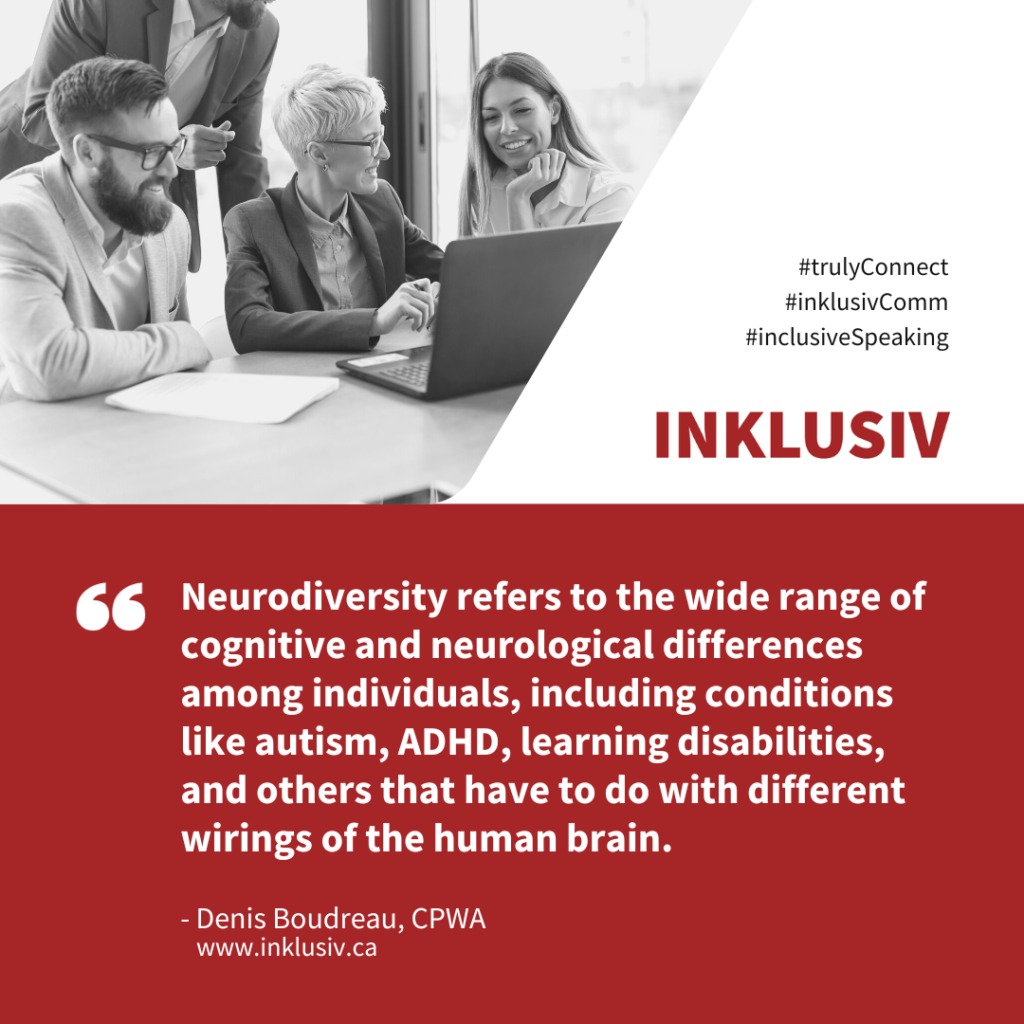

“Neurodiversity refers to the wide range of cognitive and neurological differences among individuals, including conditions like autism, ADHD, learning disabilities, and others that have to do with different wirings of the human brain.”
More details about Food For Thought #097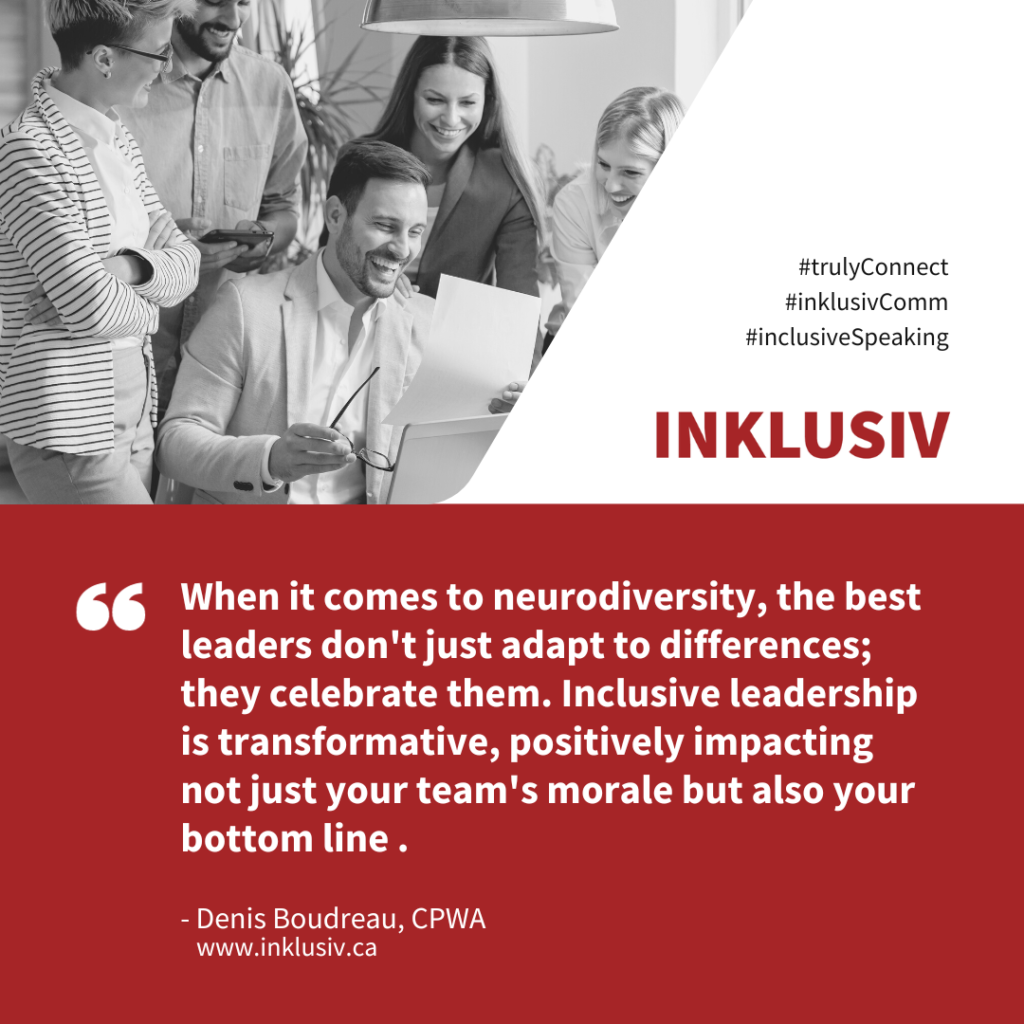

“When it comes to neurodiversity, the best leaders don’t just adapt to differences; they celebrate them. Inclusive leadership is transformative, positively impacting not just your team’s morale but also your bottom line.”
More details about Food For Thought #096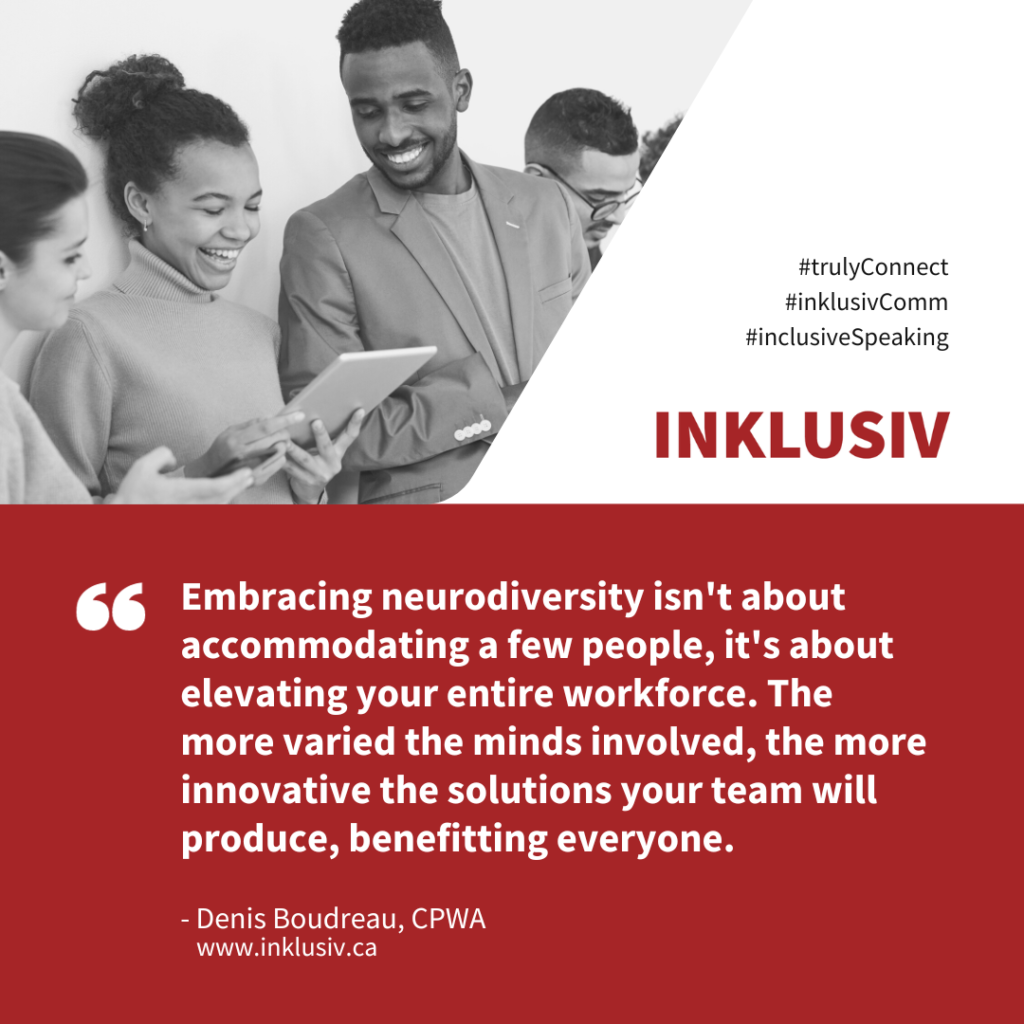

“Embracing neurodiversity isn’t about accommodating a few people; it’s about elevating your entire workforce. The more varied the minds involved, the more innovative the solutions your team will produce, benefitting everyone.”
More details about Food For Thought #095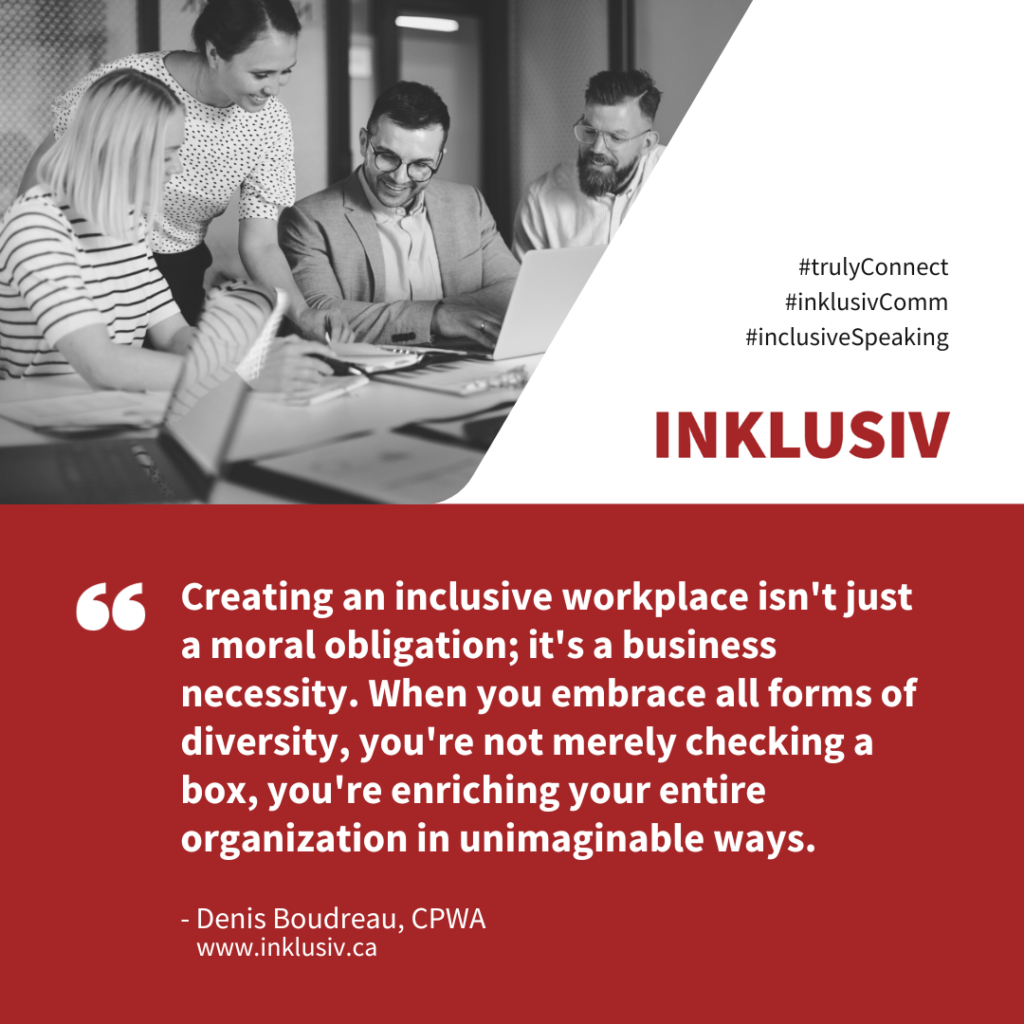

“Creating an inclusive workplace isn’t just a moral obligation; it’s a business necessity. When you embrace all forms of diversity, you’re not merely checking a box, you’re enriching your entire organization in unimaginable ways.”
More details about Food For Thought #094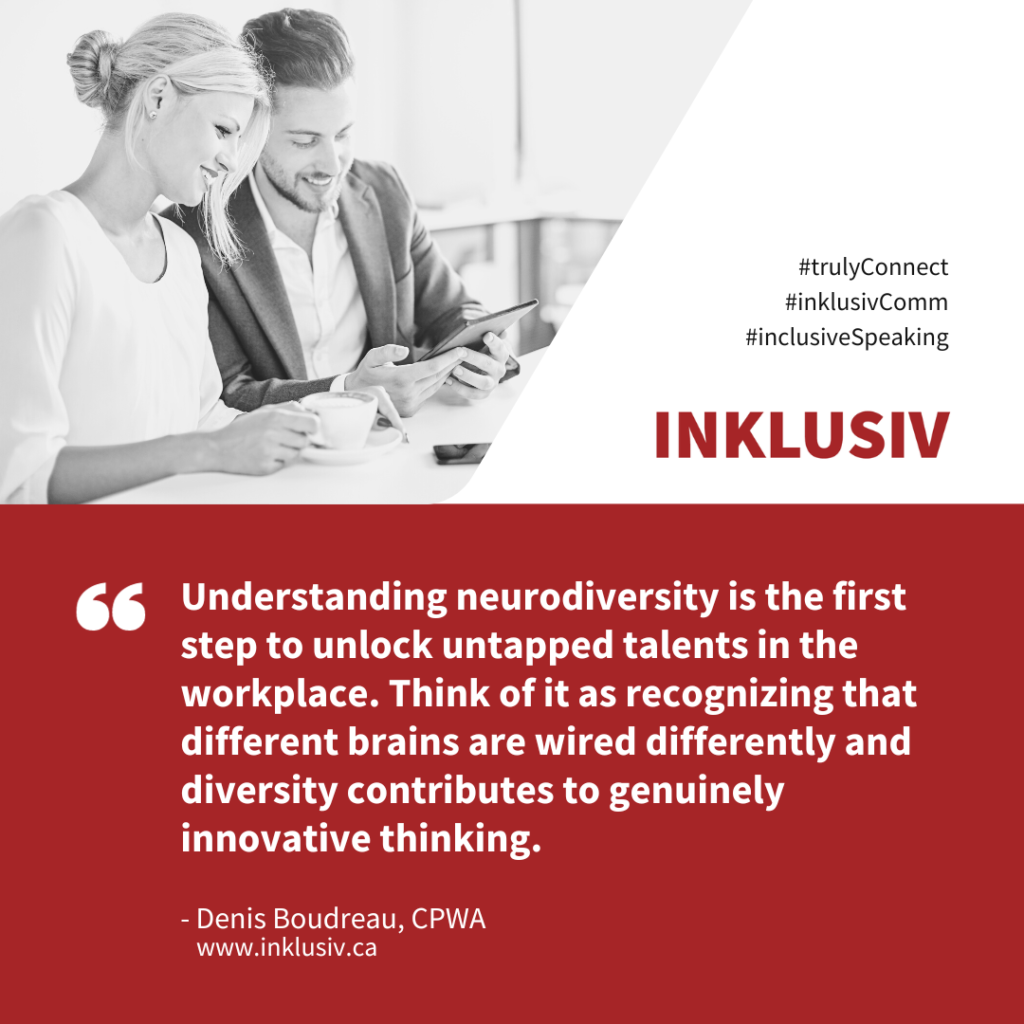

“Understanding neurodiversity is the first step to unlock untapped talents in the workplace. Think of it as recognizing that different brains are wired differently and diversity contributes to genuinely innovative thinking.”
More details about Food For Thought #093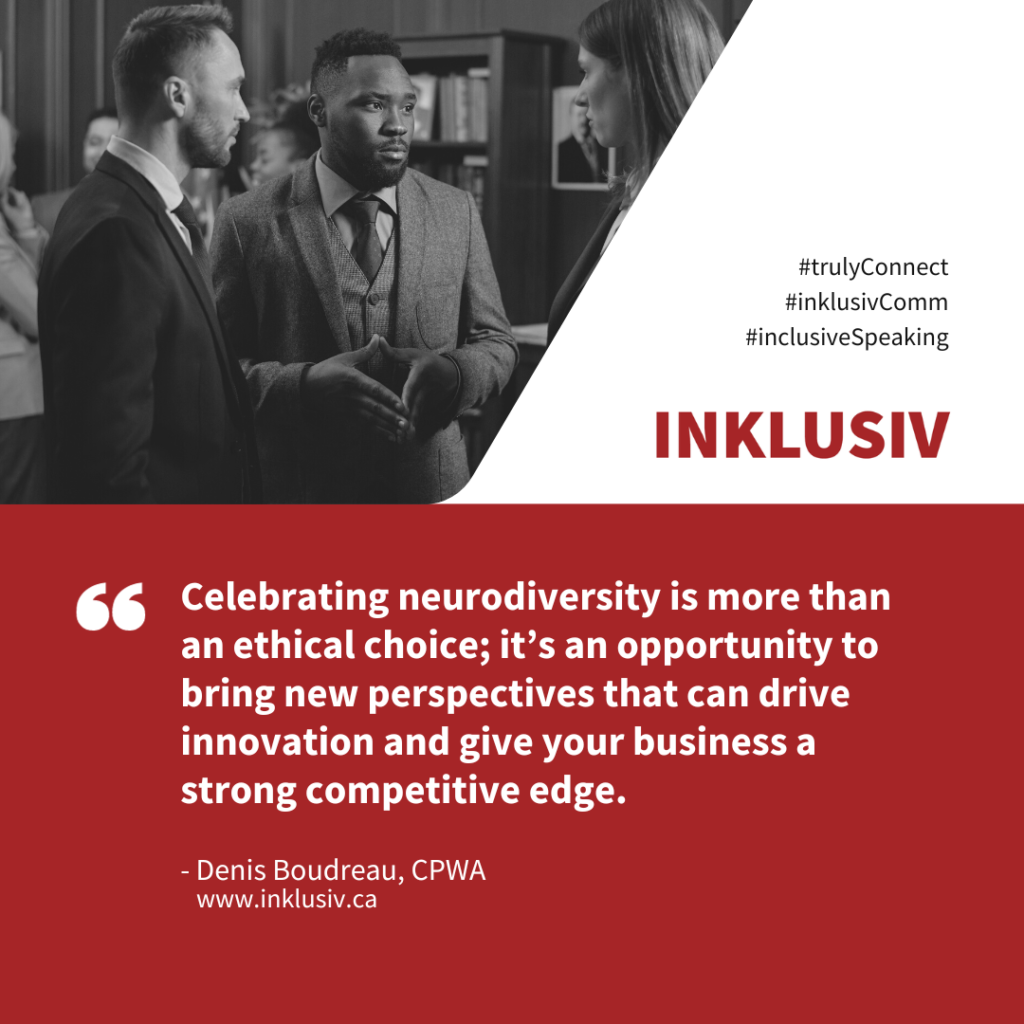

“Celebrating neurodiversity is more than an ethical choice; it’s an opportunity to bring new perspectives that can drive innovation and give your business a strong competitive edge.”
More details about Food For Thought #092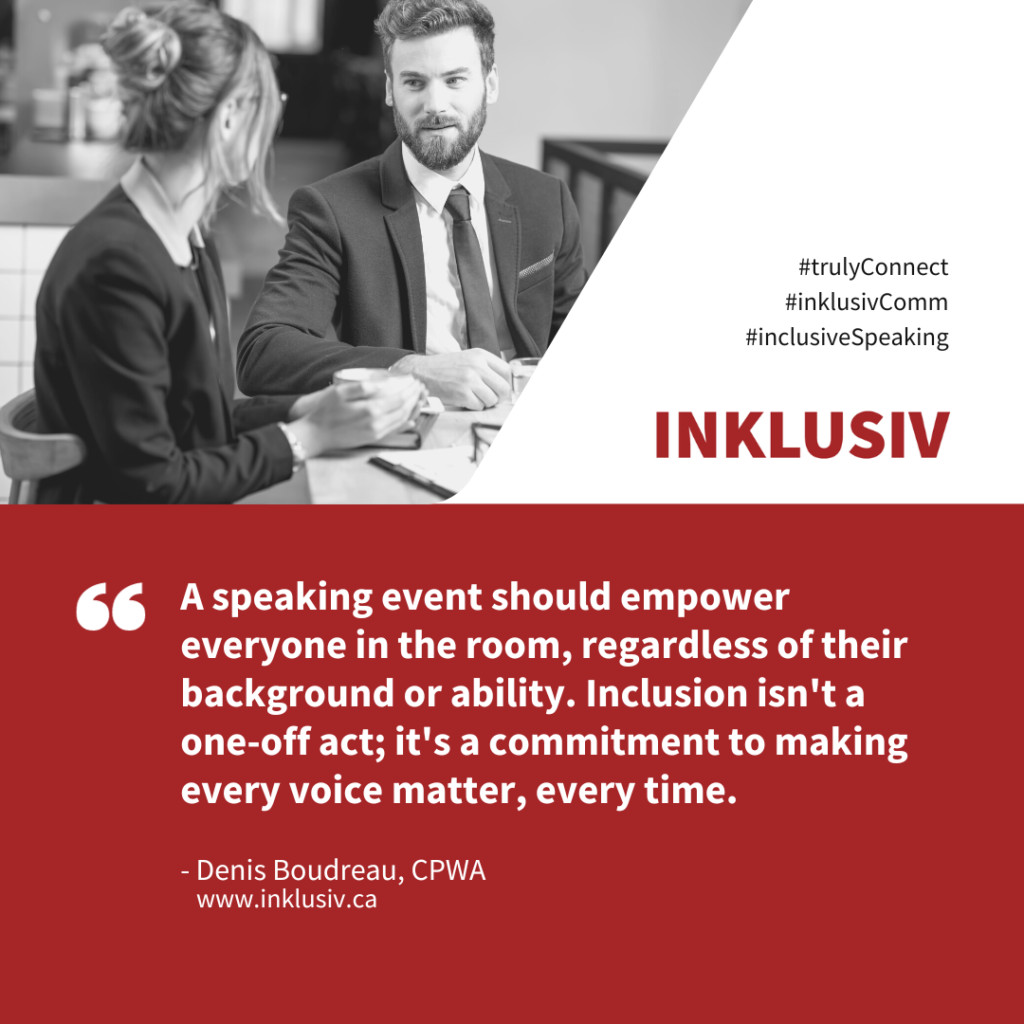

“A speaking event should empower everyone in the room, regardless of their background or ability. Inclusion isn’t a one-off act; it’s a commitment to making every voice matter, every time.”
More details about Food For Thought #091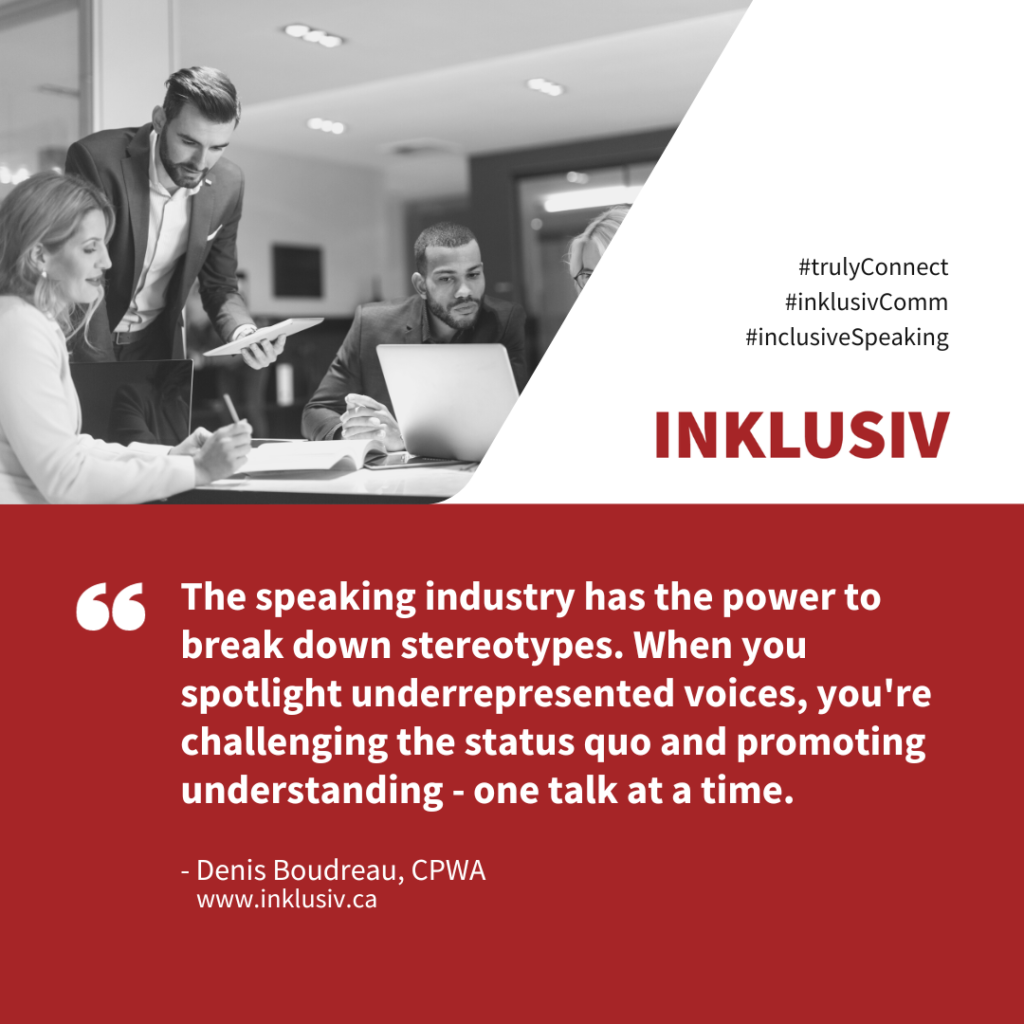

“The speaking industry has the power to break down stereotypes. When you spotlight underrepresented voices, you’re challenging the status quo and promoting understanding – one talk at a time.”
More details about Food For Thought #090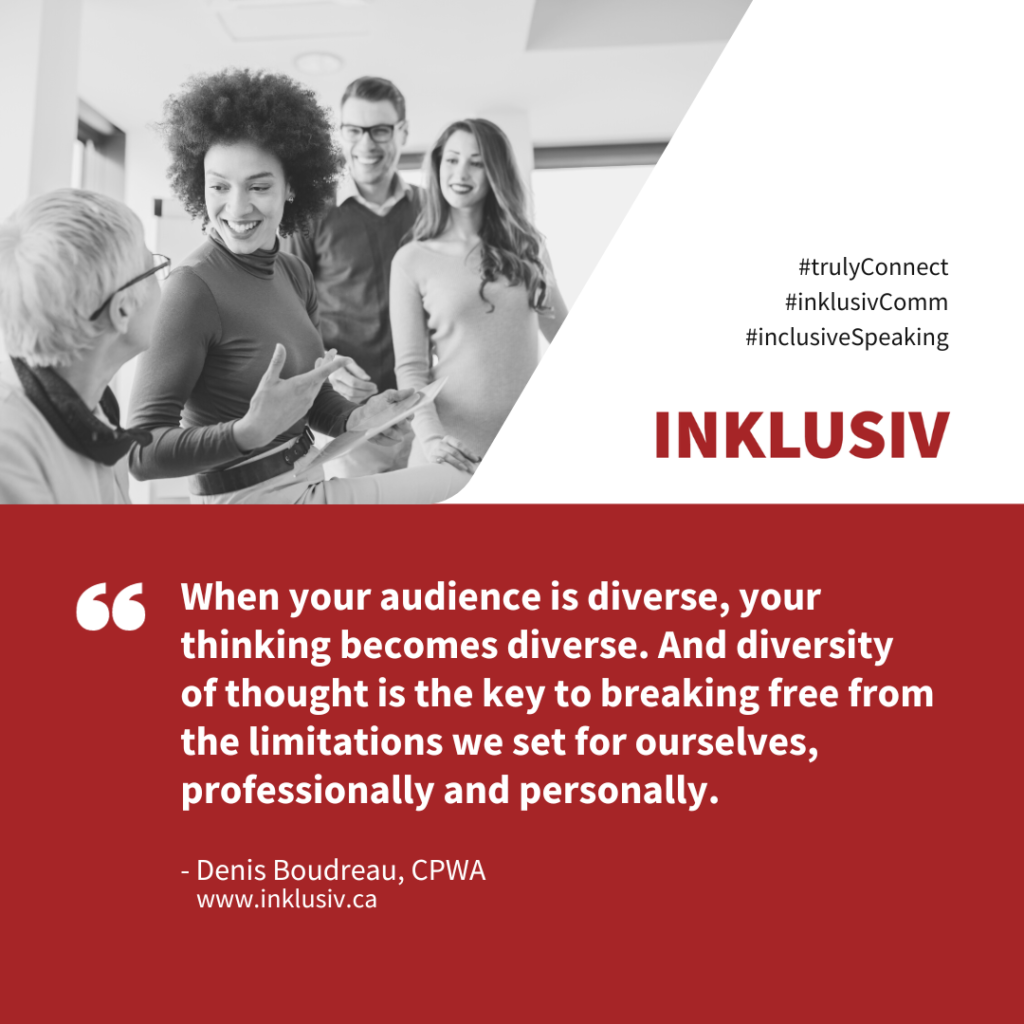

“When your audience is diverse, your thinking becomes diverse. And diversity of thought is the key to breaking free from the limitations we set for ourselves, professionally and personally.”
More details about Food For Thought #089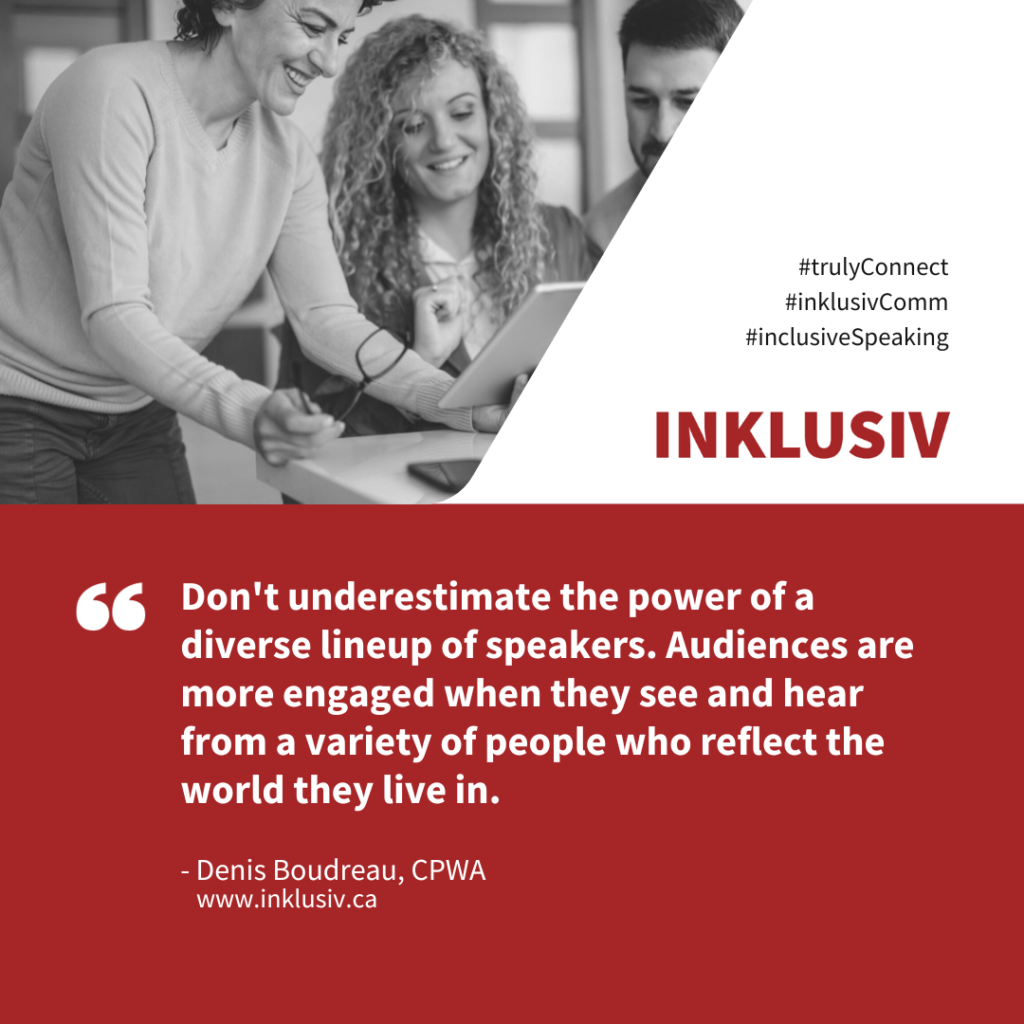

“Don’t underestimate the power of a diverse lineup of speakers. Audiences are more engaged when they see and hear from a variety of people who reflect the world they live in.”
More details about Food For Thought #088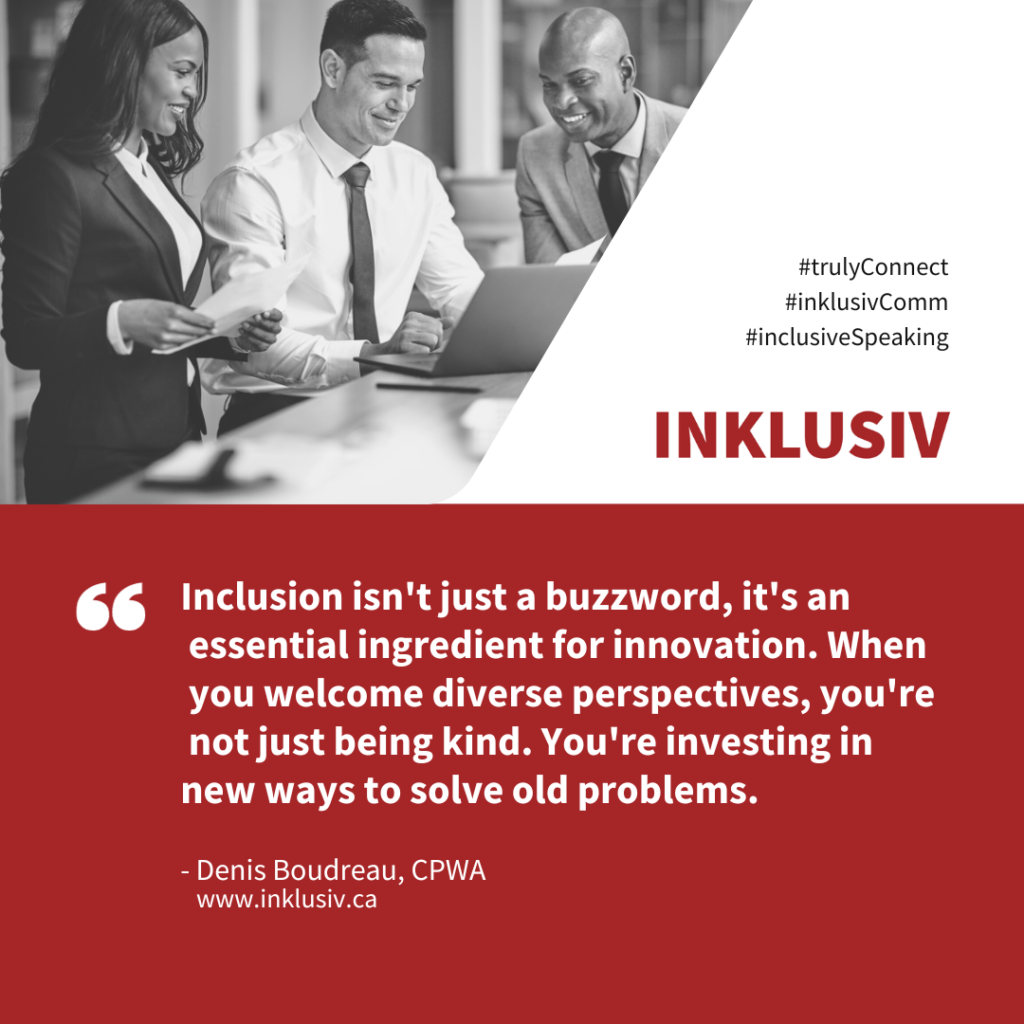

“Inclusion isn’t just a buzzword, it’s an essential ingredient for innovation. When you welcome diverse perspectives, you’re not just being kind. You’re investing in new ways to solve old problems.”
More details about Food For Thought #087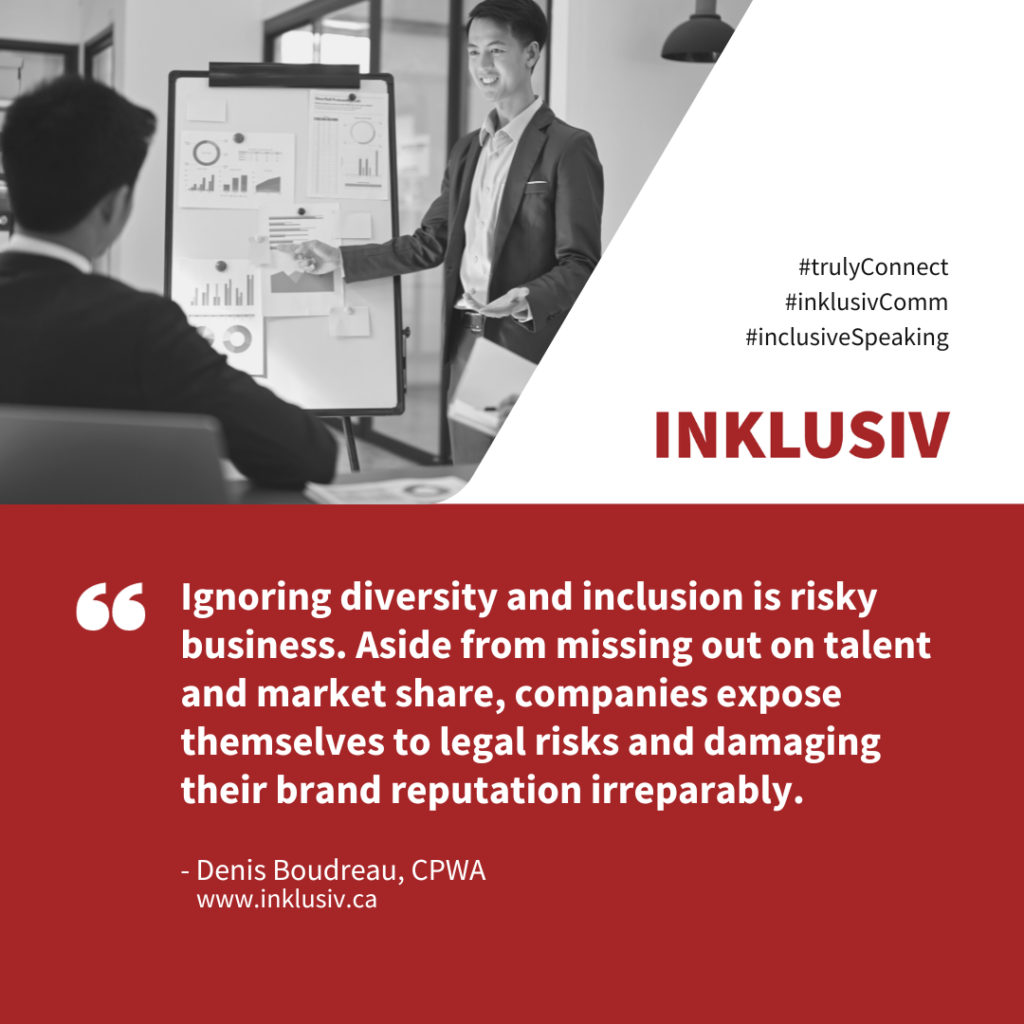

“Ignoring diversity and inclusion is risky business. Aside from missing out on talent and market share, companies expose themselves to legal risks and damaging their brand reputation irreparably.”
More details about Food For Thought #086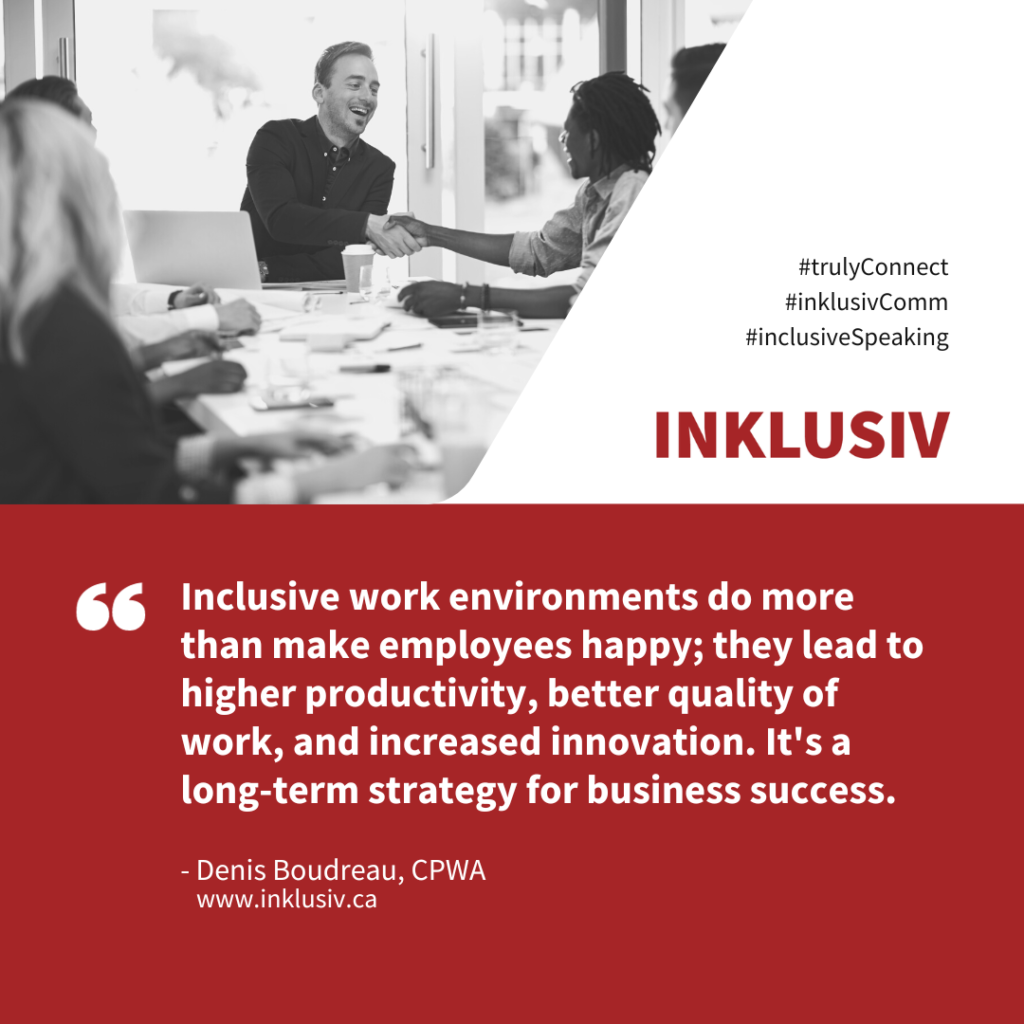

“Inclusive work environments do more than make employees happy; they lead to higher productivity, better quality of work, and increased innovation. It’s a long-term strategy for business success.”
More details about Food For Thought #085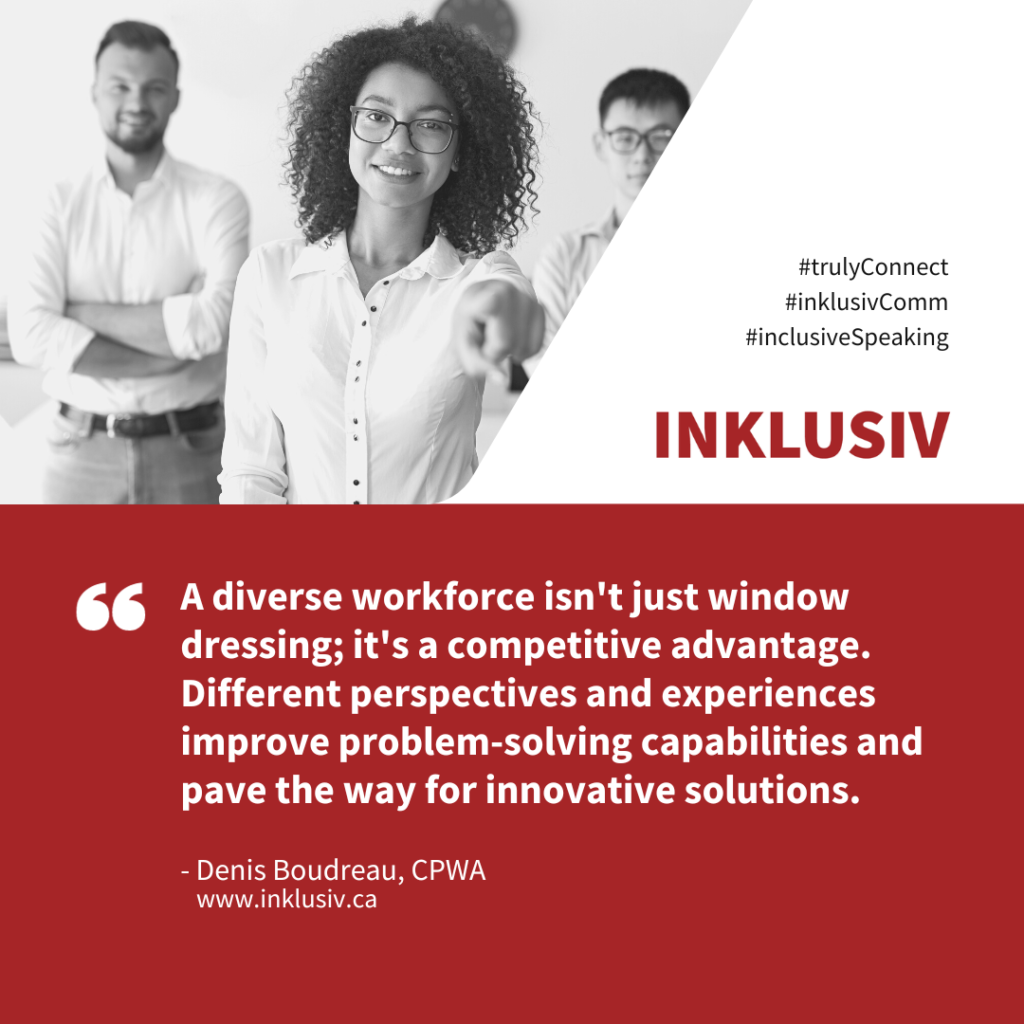

“A diverse workforce isn’t just window dressing; it’s a competitive advantage. Different perspectives and experiences improve problem-solving capabilities and pave the way for innovative solutions.”
More details about Food For Thought #084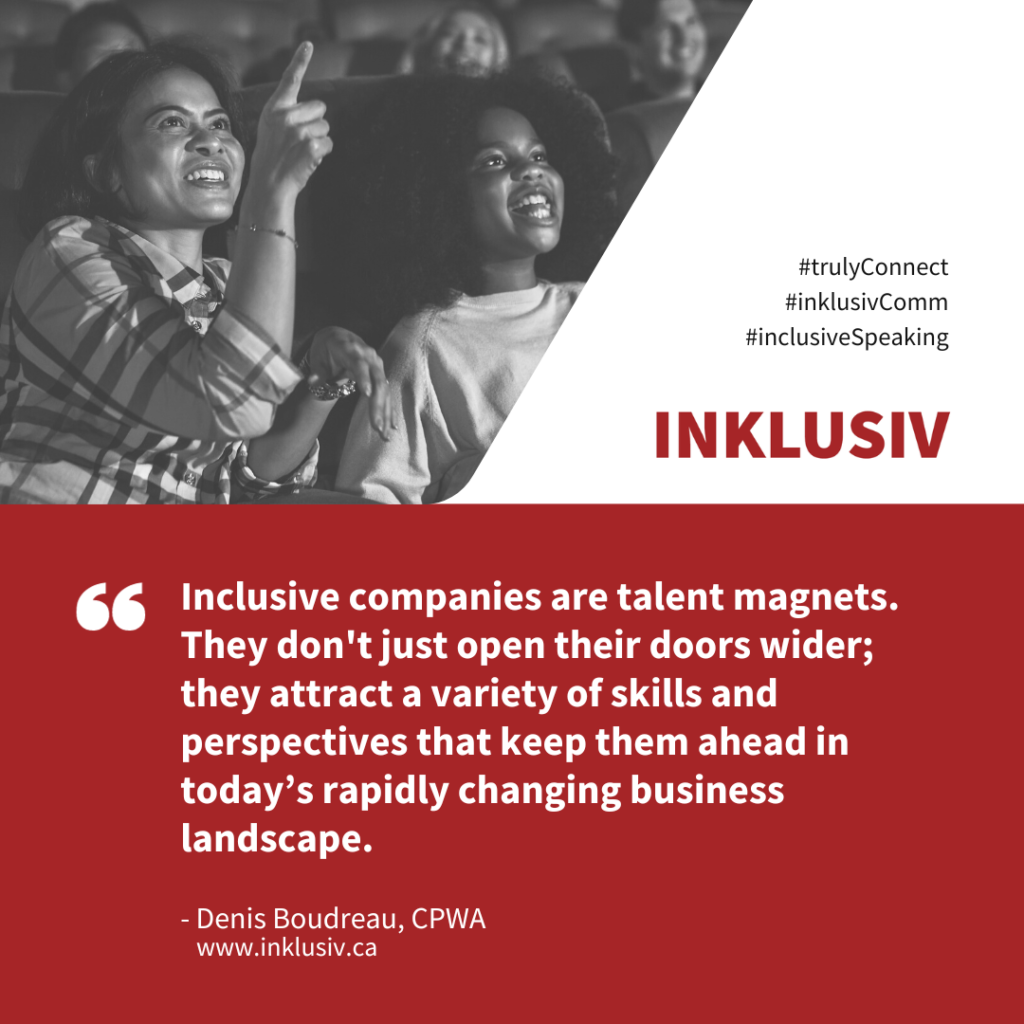

“Inclusive companies are talent magnets. They don’t just open their doors wider; they attract a variety of skills and perspectives that keep them ahead in today’s rapidly changing business landscape.”
More details about Food For Thought #083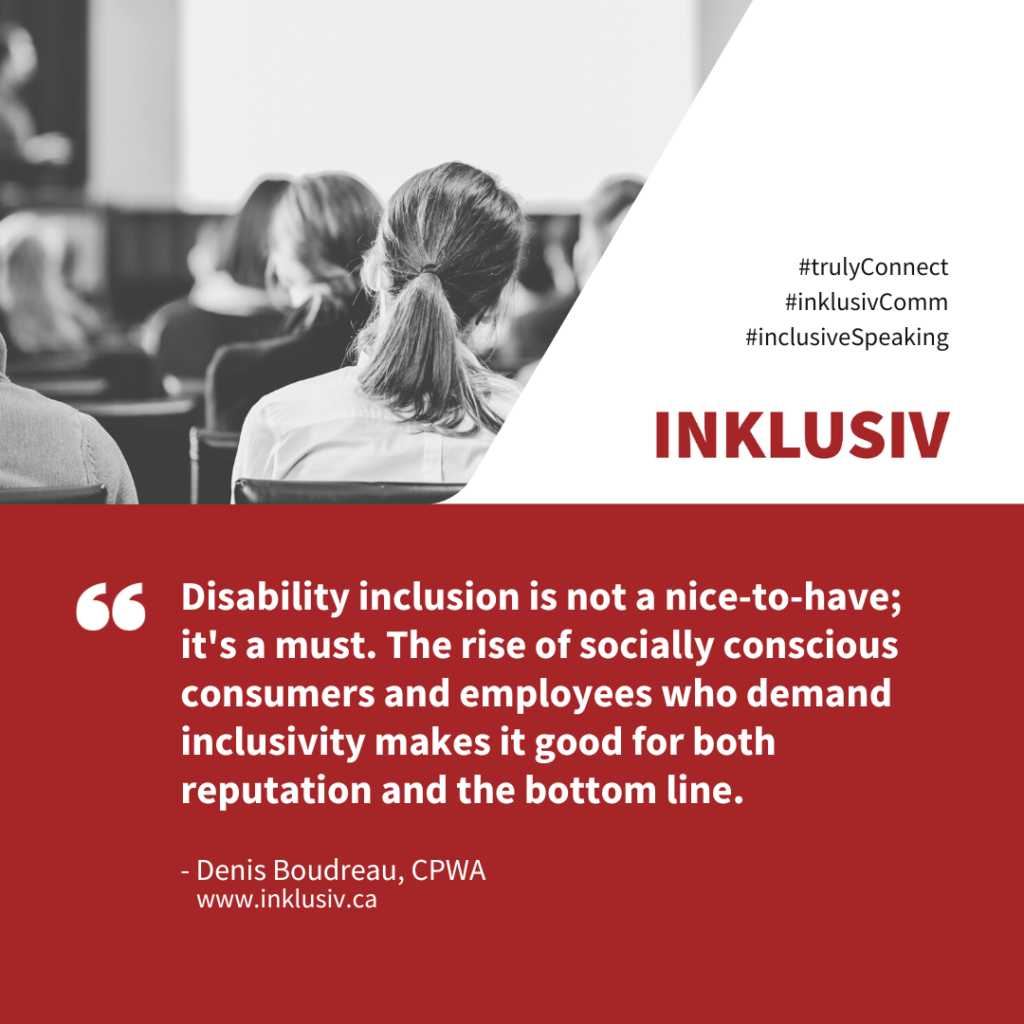

“Disability inclusion is not a nice-to-have; it’s a must. The rise of socially conscious consumers and employees who demand inclusivity makes it good for both reputation and the bottom line.”
More details about Food For Thought #082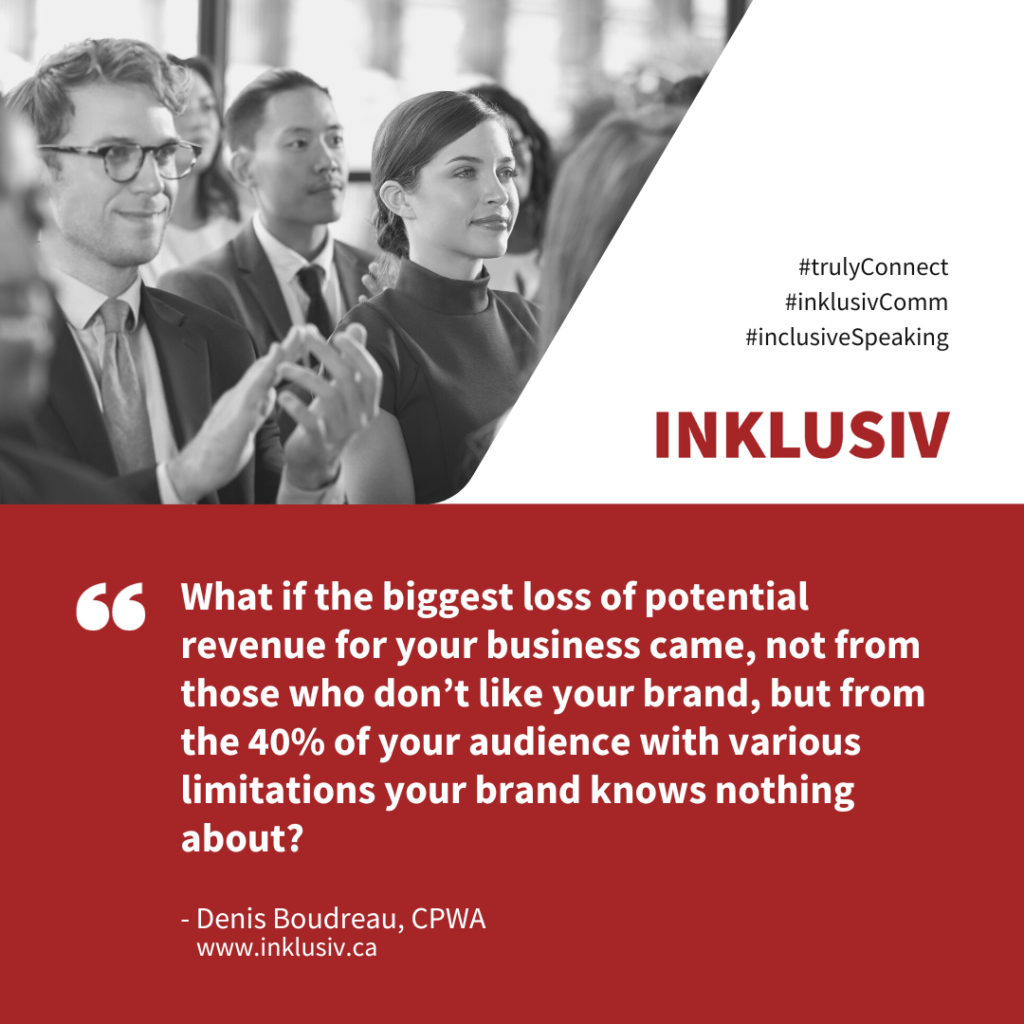

“What if the biggest loss of potential revenue for your business came, not from those who don’t like your brand, but from the 40% of your audience with various limitations your brand knows nothing about?”
More details about Food For Thought #081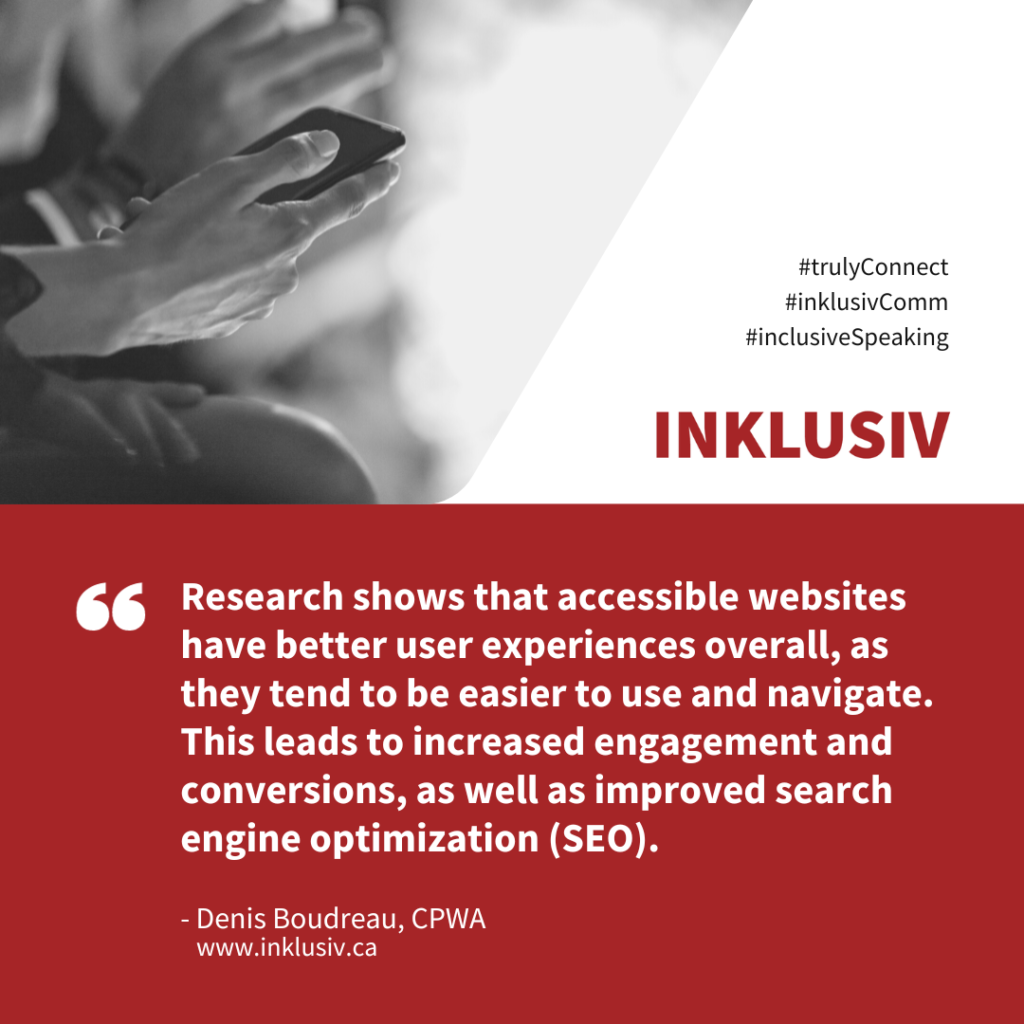

“Research shows that accessible websites have better user experiences overall, as they tend to be easier to use and navigate. This leads to increased engagement and conversions, as well as improved search engine optimization (SEO).”
More details about Food For Thought #080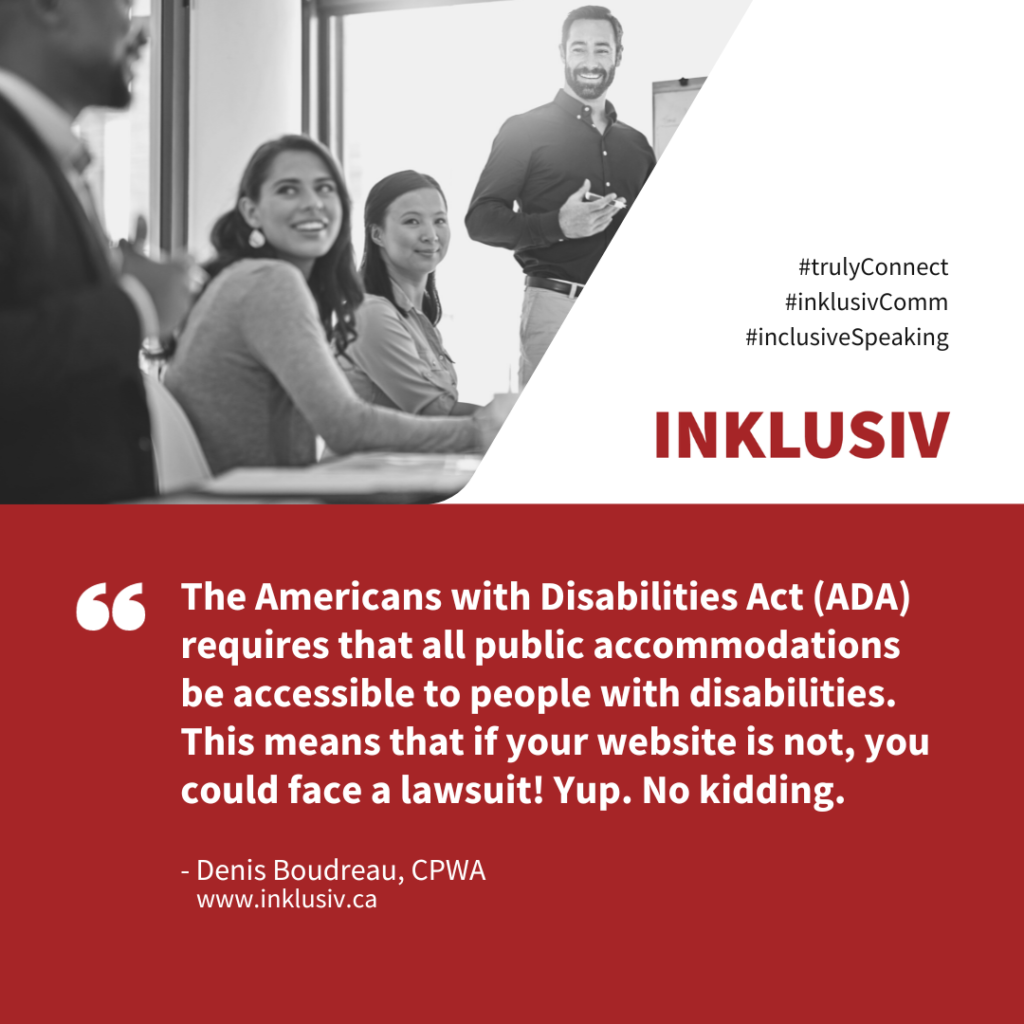

“The Americans with Disabilities Act (ADA) requires that all public accommodations be accessible to people with disabilities. This means that if your website is not, you could face a lawsuit! Yup. No kidding.”
More details about Food For Thought #079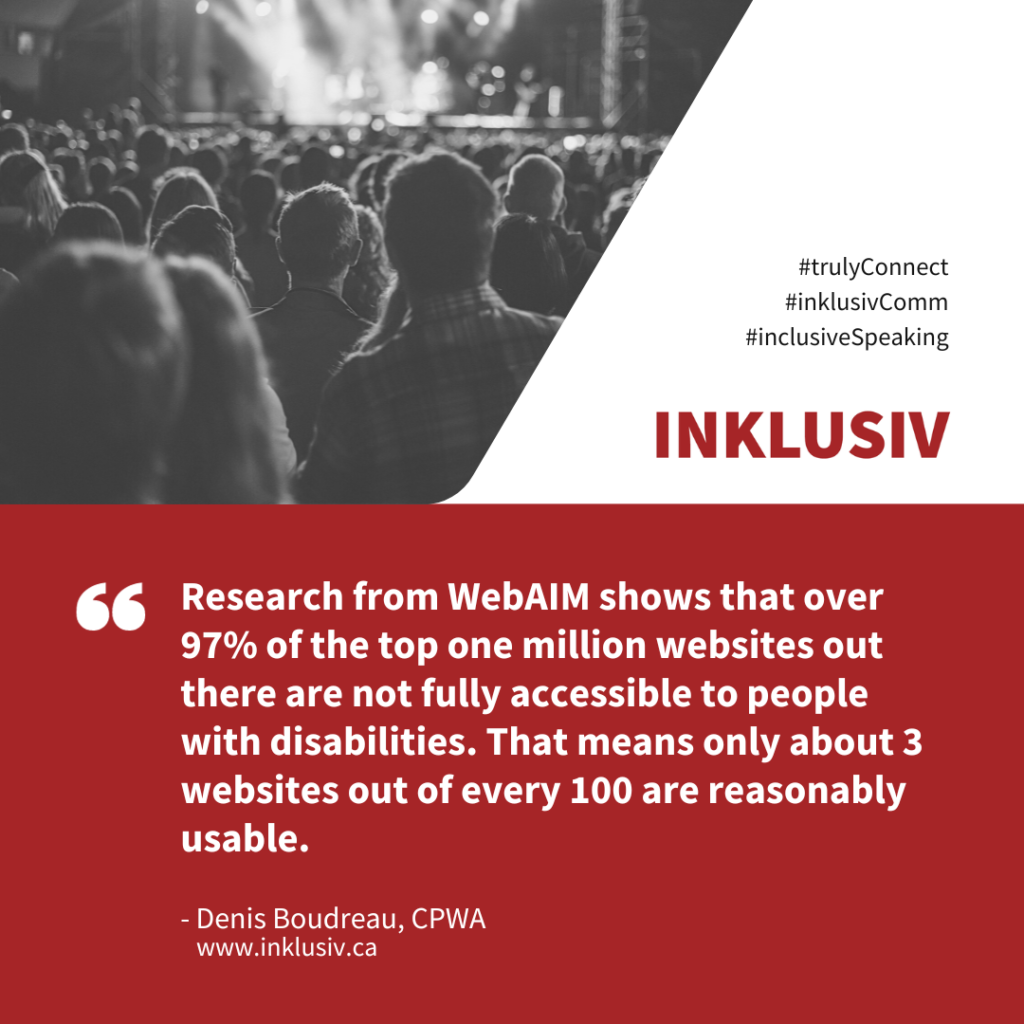

“Research from WebAIM shows that over 97% of the top one million websites out there are not fully accessible to people with disabilities. That means only about 3 websites out of every 100 are reasonably usable.”
More details about Food For Thought #078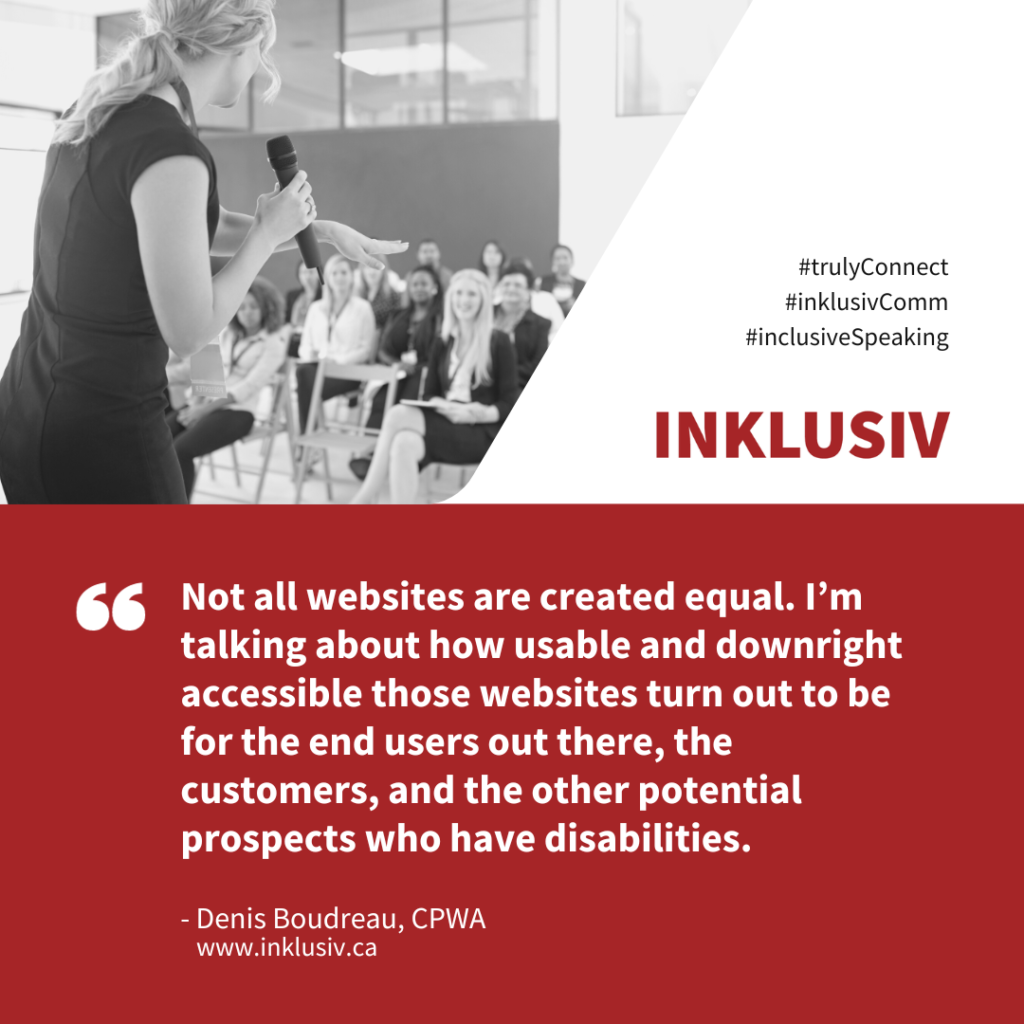

“Not all websites are created equal. I’m talking about how usable and downright accessible those websites turn out to be for the end users out there, the customers, and the other potential prospects who have disabilities.”
More details about Food For Thought #077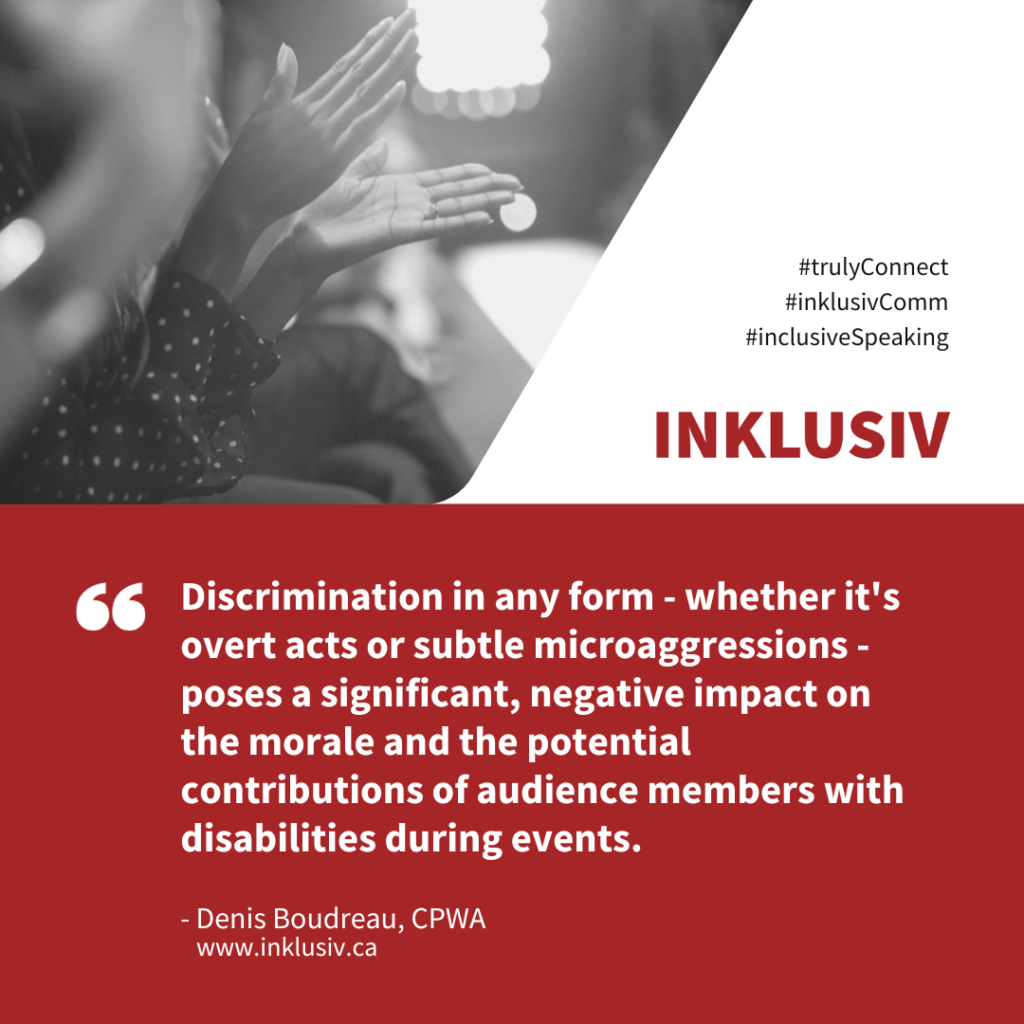

“Discrimination in any form – whether it’s overt acts or subtle microaggressions – poses a significant, negative impact on the morale and the potential contributions of audience members with disabilities during events.”
More details about Food For Thought #076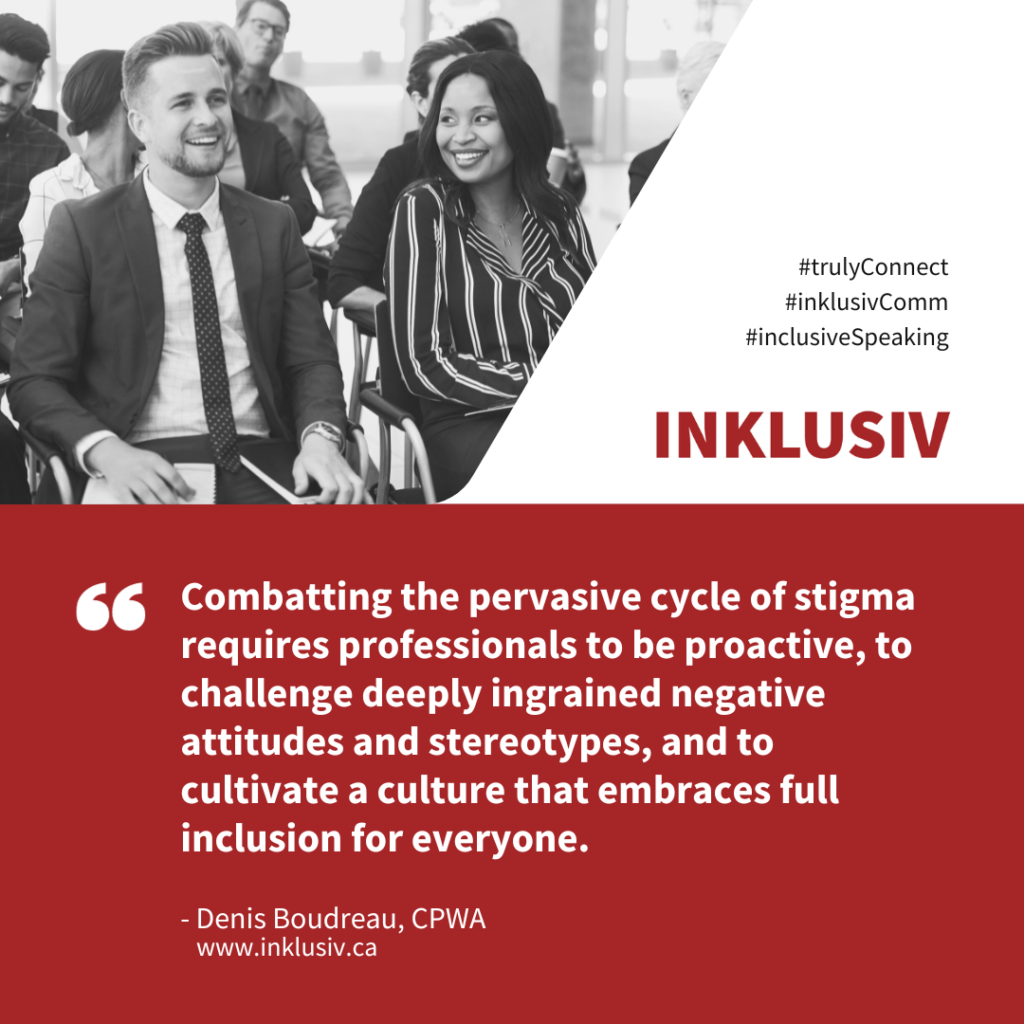

“Combatting the pervasive cycle of stigma requires professionals to be proactive, to challenge deeply ingrained negative attitudes and stereotypes, and to cultivate a culture that embraces full inclusion for everyone.”
More details about Food For Thought #075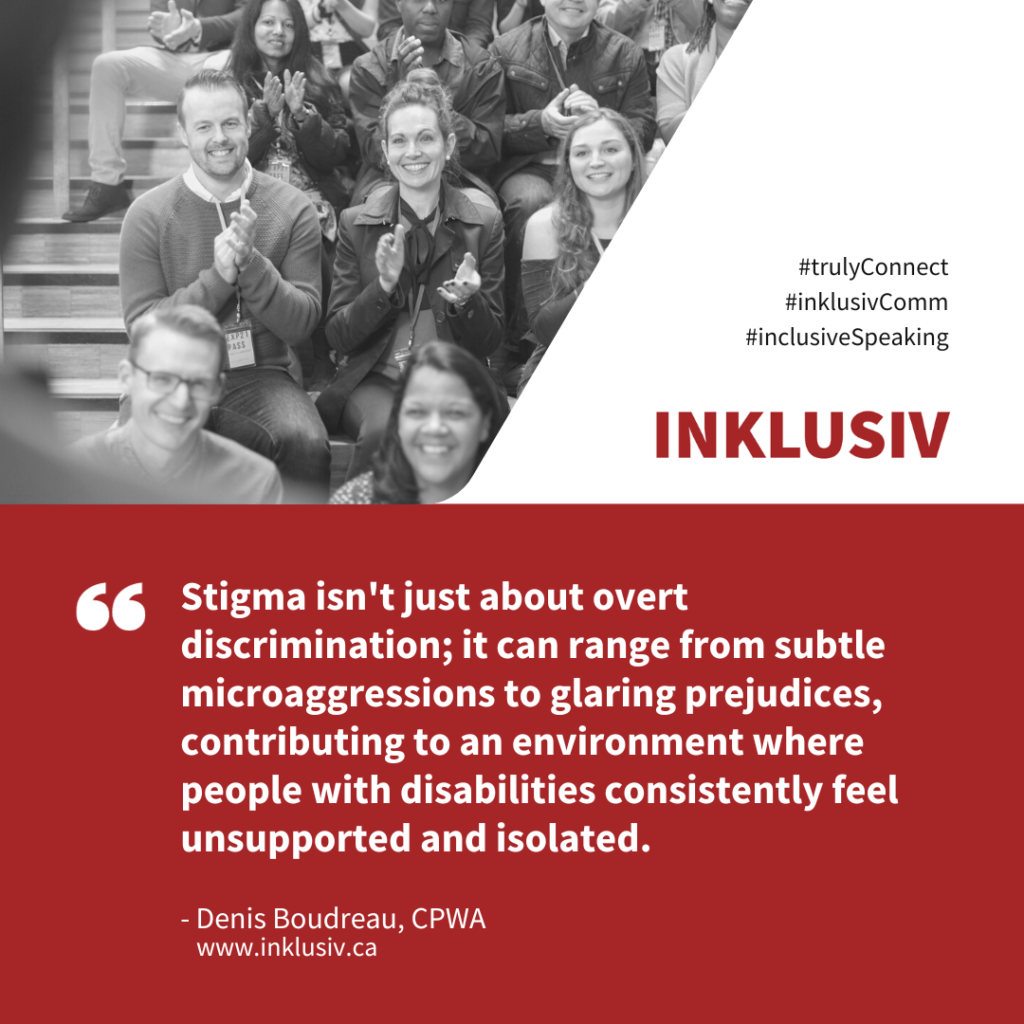

“Stigma isn’t just about overt discrimination; it can range from subtle microaggressions to glaring prejudices, contributing to an environment where people with disabilities consistently feel unsupported and isolated.”
More details about Food For Thought #074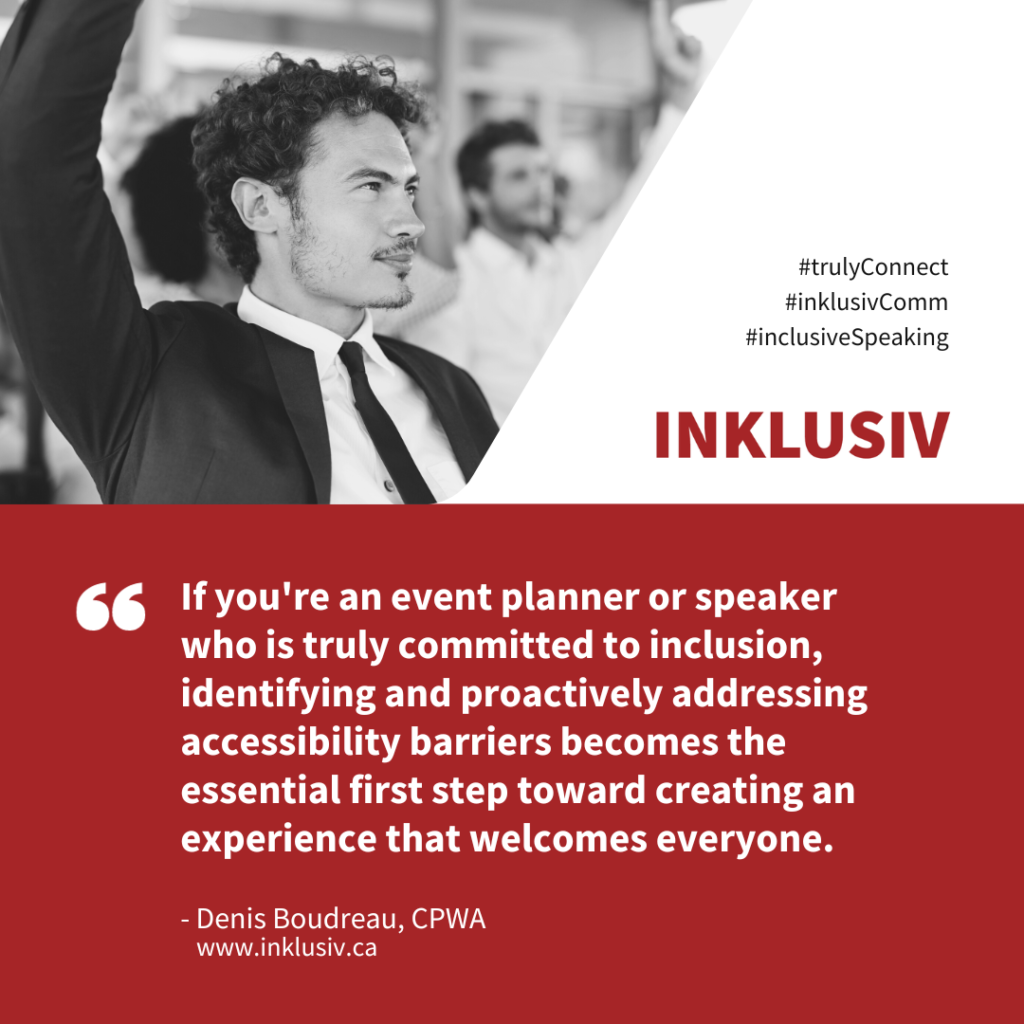

“If you’re an event planner or speaker who is truly committed to inclusion, identifying and proactively addressing accessibility barriers becomes the essential first step toward creating an experience that welcomes everyone.”
More details about Food For Thought #073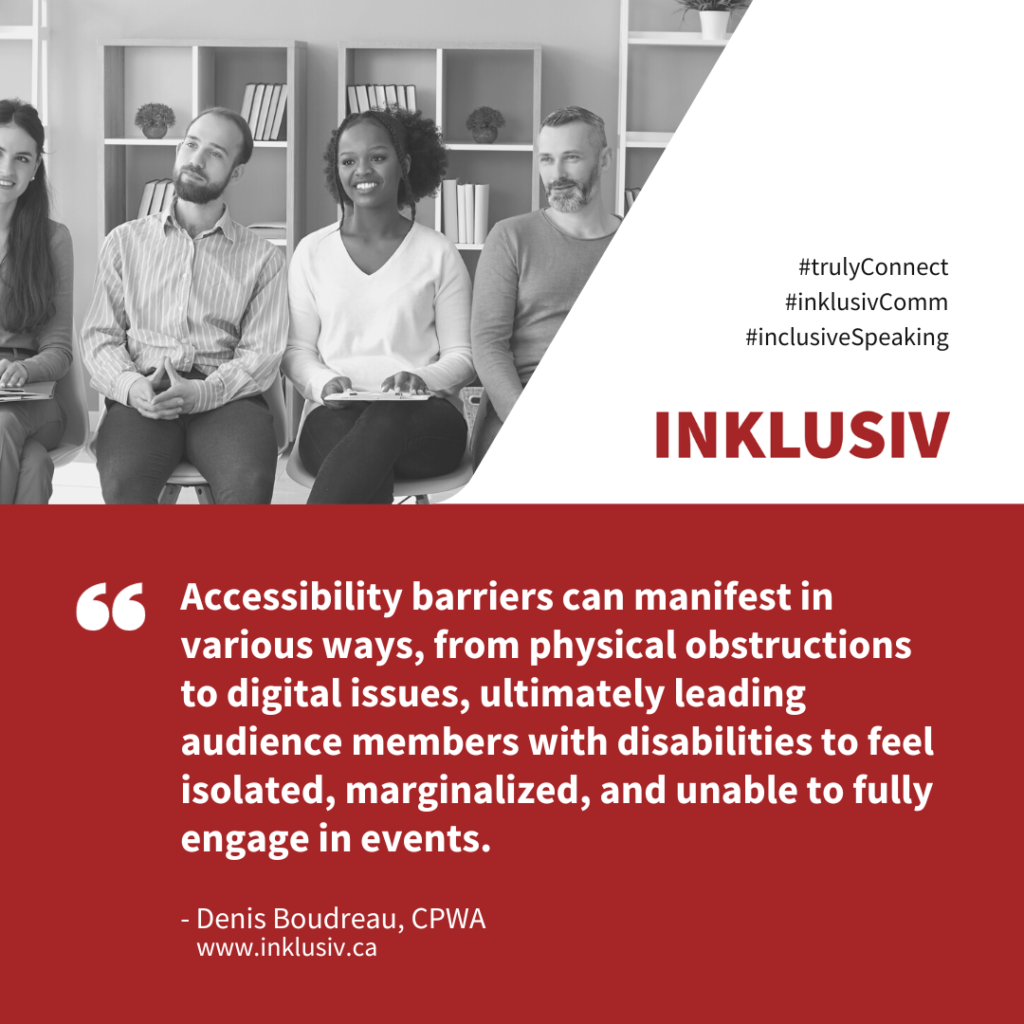

“Accessibility barriers can manifest in various ways, from physical obstructions to digital issues, ultimately leading audience members with disabilities to feel isolated, marginalized, and unable to fully engage in events.”
More details about Food For Thought #072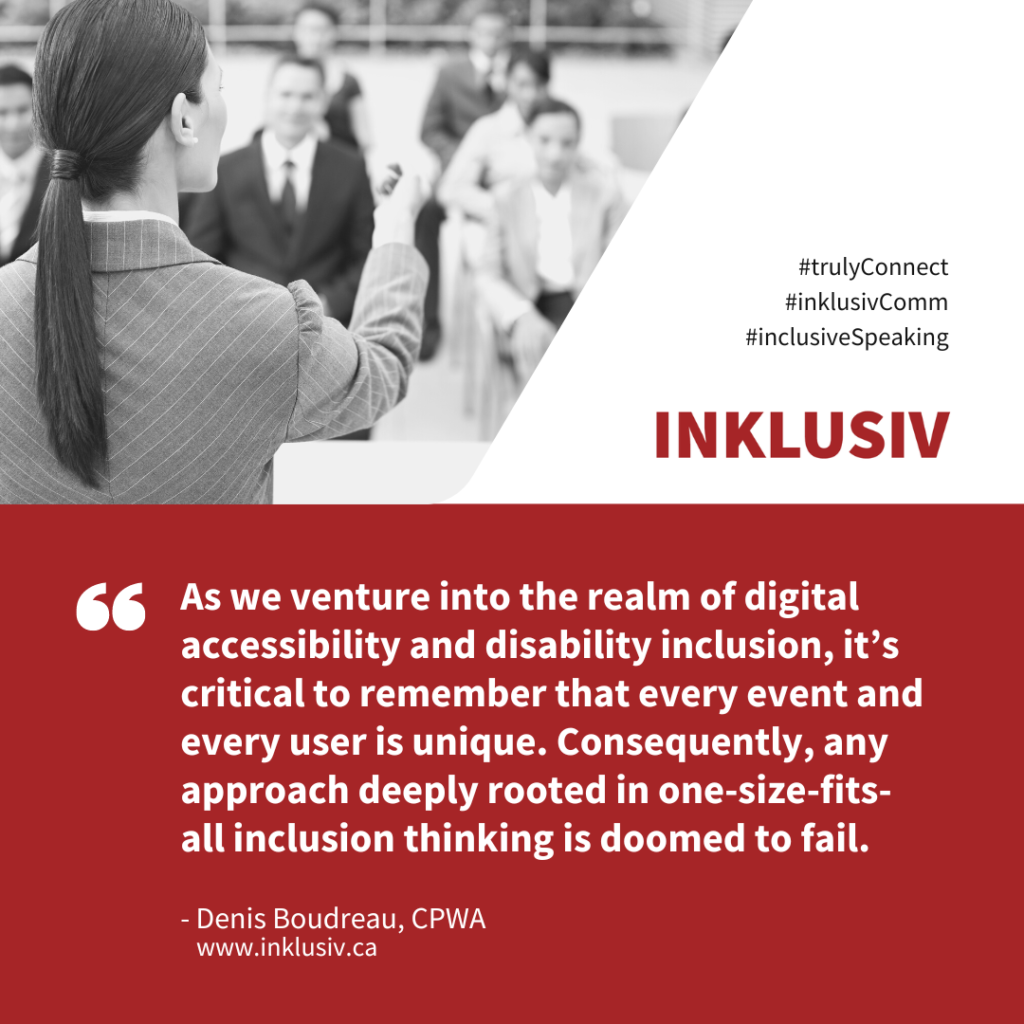

“As we venture into the realm of digital accessibility and disability inclusion, it’s critical to remember that every event and every user is unique. Consequently, any approach deeply rooted in one-size-fits-all inclusion thinking is doomed to fail.”
More details about Food For Thought #071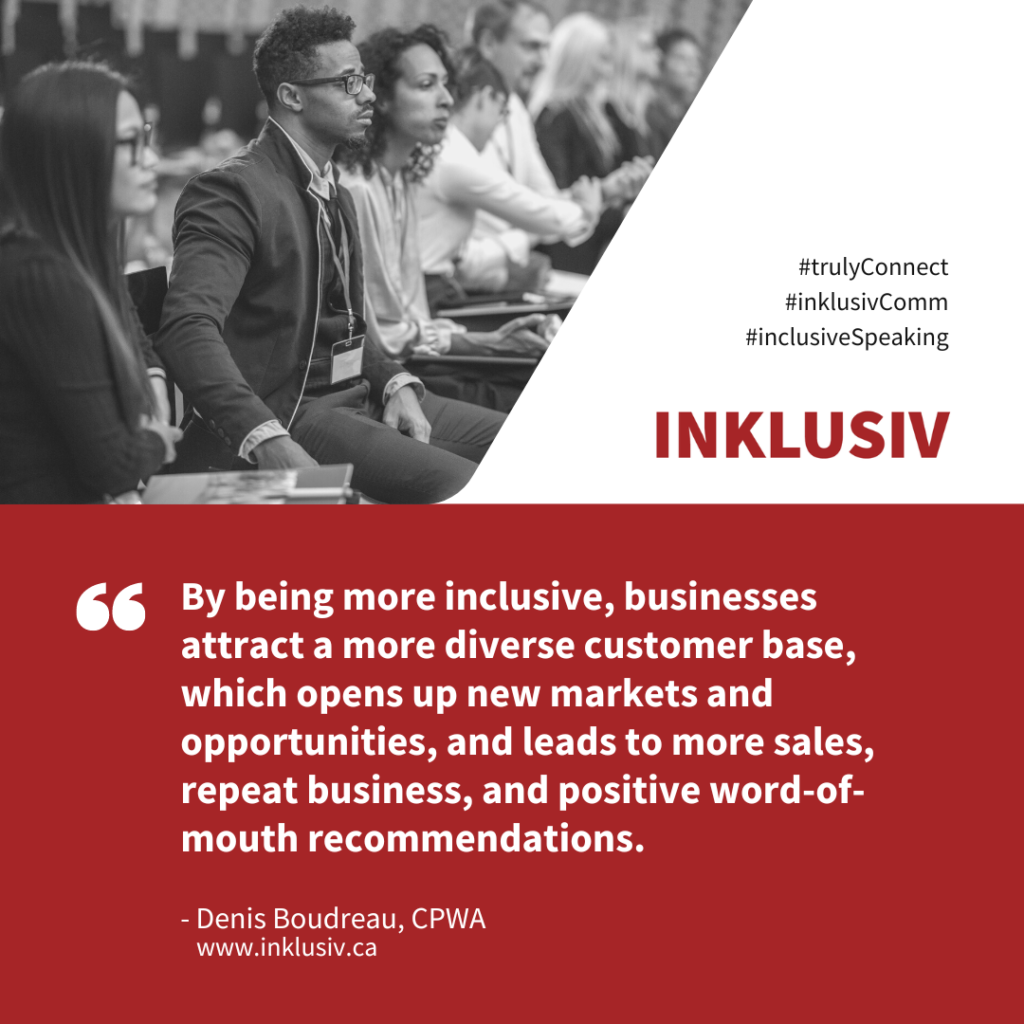

“By being more inclusive, businesses attract a more diverse customer base, which opens up new markets and opportunities, and leads to more sales, repeat business, and positive word-of-mouth recommendations.”
More details about Food For Thought #070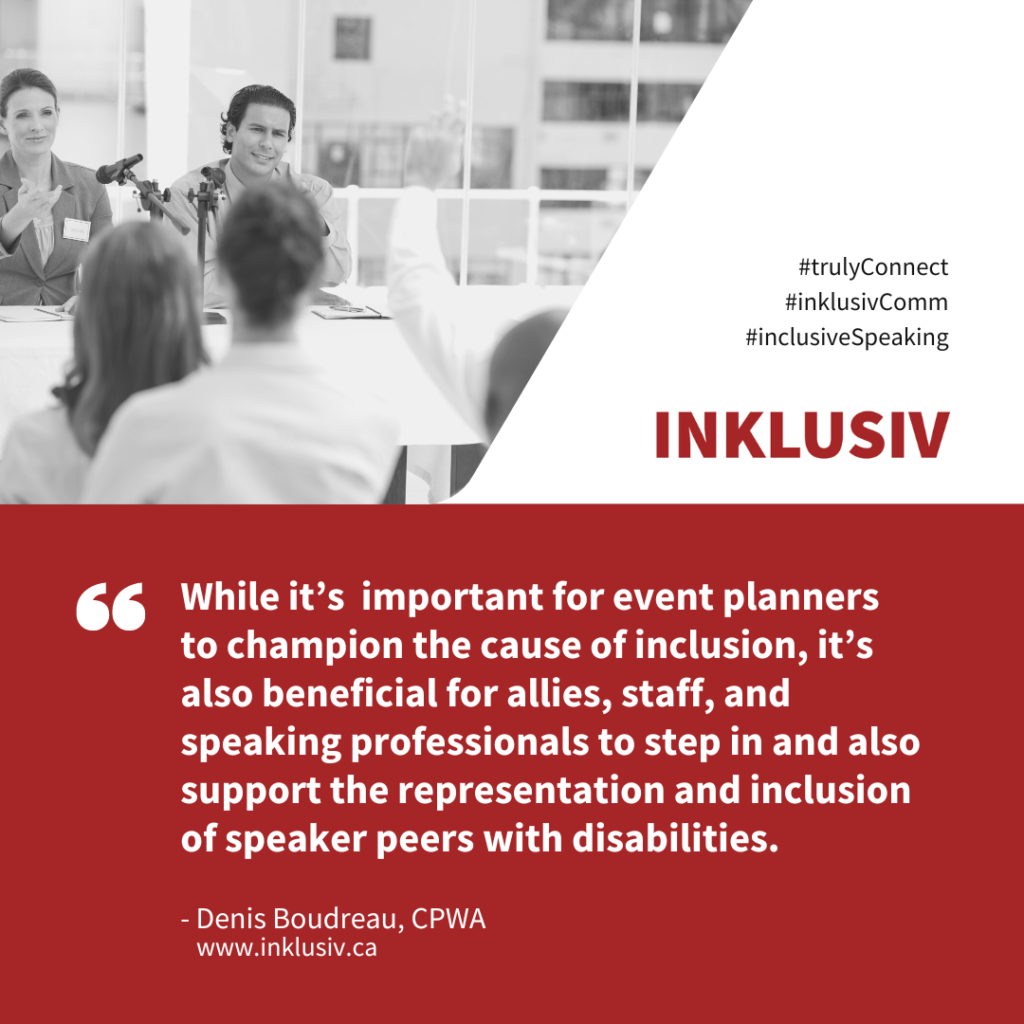

“While it’s important for event planners to champion the cause of inclusion, it’s also beneficial for allies, staff, and speaking professionals to step in and also support the representation and inclusion of speaker peers with disabilities.”
More details about Food For Thought #069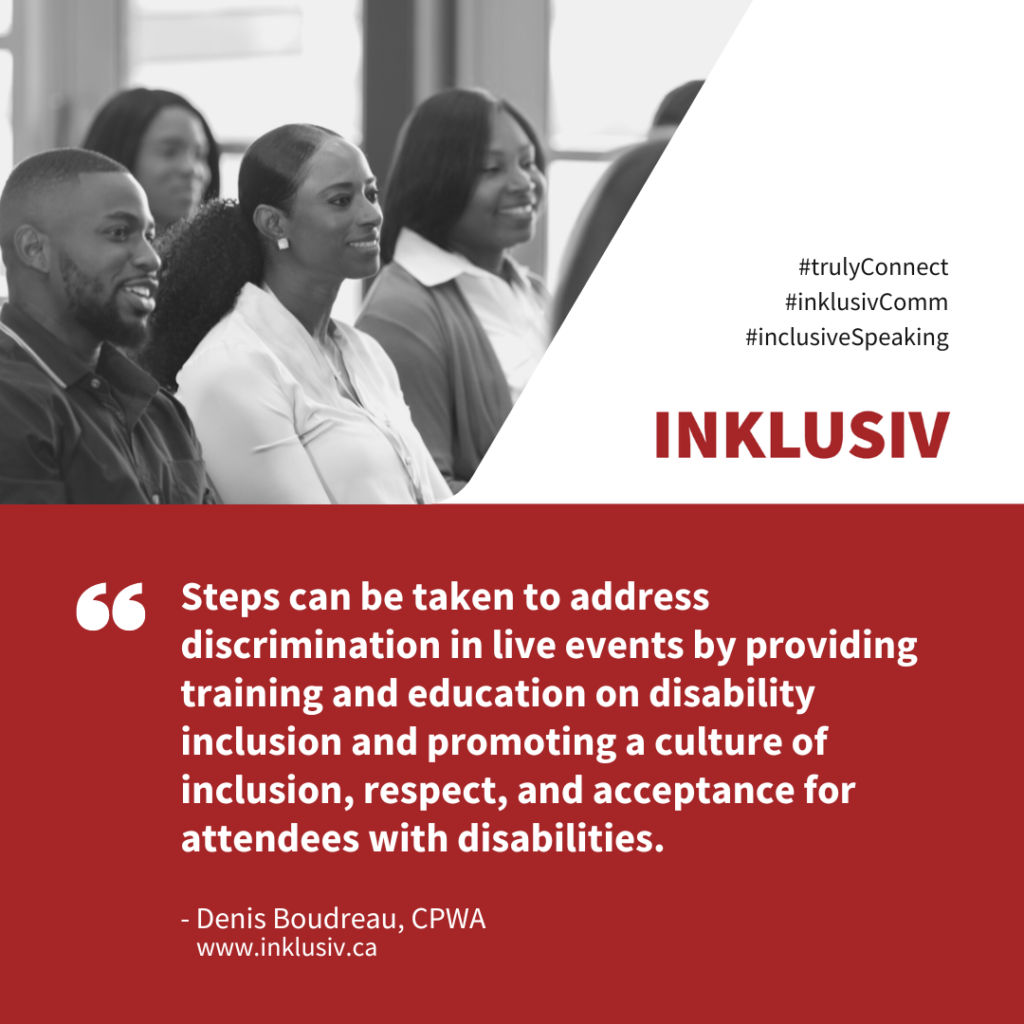

“Steps can be taken to address discrimination in live events by providing training and education on disability inclusion and promoting a culture of inclusion, respect, and acceptance for attendees with disabilities.”
More details about Food For Thought #068